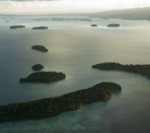
A people-centred and human rights based approach, as well as inclusive and green economic development strategies will be key in achieving the new sustainable development goals stressed the Asia-Pacific Forum on Sustainable Development held in Bangkok on 21-22 May. The event also underscored the importance of concerted regional cooperation.
Convened by the United Nations Economic and Social Commission for Asia and the Pacific (ESCAP), the Forum was the second regional meeting under the High-level Political Forum (HLPF) – the preeminent United Nations global body providing political leadership and guidance on sustainable development.
As the United Nations transitions from a development agenda driven by the Millennium Development Goals (MDGs) to a post-2015 development agenda anchored by sustainability, the Forum outcomes will serve as the regional input into the global HLPF and enrich negotiations for the General Assembly summit in September, where the United Nations Post-2015 Development Agenda will be adopted.
“We agreed on the need to focus on a more inclusive, balanced and sustained growth path, while respecting planetary boundaries and social needs…”
Shamshad Akhtar ESCAP Executive Secretary
Over the past two days, regional priorities and perspectives on the United Nations post-2015 development agenda and pathways towards operationalization of a balanced, integrated sustainable development were shared by ministers and high-level representatives from across the region, along with civil society, United Nations and private sector organizations.
“This Forum provides this region with an exciting opportunity,” said United Nations Under-Secretary-General and ESCAP Executive Secretary, Shamshad Akhtar in her closing remarks.“We agreed on the need to focus on a more inclusive, balanced and sustained growth path, while respecting planetary boundaries and social needs, and called for region-wide acceptance of social justice and ecological sustainability, as fundamental policy objectives.”
“Recognizing that the sustainable development agenda must be firmly embedded in national policy frameworks, and requires national and local ownership, we also called for enhanced political commitment and leadership to realize sustainable development aspirations,” she added.
The importance of shifting policy frameworks to serve as fundamental drivers of sustainable development, where the quality of growth is redefined to go beyond GDP towards expanded notions of well-being, and where the region’s economic dynamism delivers on inclusive and green growth were highlighted as regionally specific priorities.
Although the primary responsibility for sustainable development lies with governments, the role of the private sector will be vital in delivering on the post-2015 development agenda. The SDGs should cascade from the global to national levels, with direct business involvement in operationalization of goals, supported by proper incentives to deliver on sustainability.
Other key priorities include supporting mainstreaming of environment in financial and budget planning systems in partnership with ministries of finance, central banks, stock exchanges and the private sector; adopting sustainability principles as a central development paradigm; aligning national budgeting and finance with sustainable development priorities and putting in place appropriate policies, laws, regulations and economic instruments.
As the United Nations gears up to adopting its post-2015 development agenda, streamlined and nationally appropriate follow up and review mechanism, based on robust statistical data and multi-stakeholder participation were deemed as important elements of delivering on the ambitious goals and targets.
Outcomes from the meeting will be shared with 71st Session of the Commission in Bangkok and then with the HLPF, to be convened at the United Nations Headquarters in New York in July 2015.
Source: UN ESCAP
